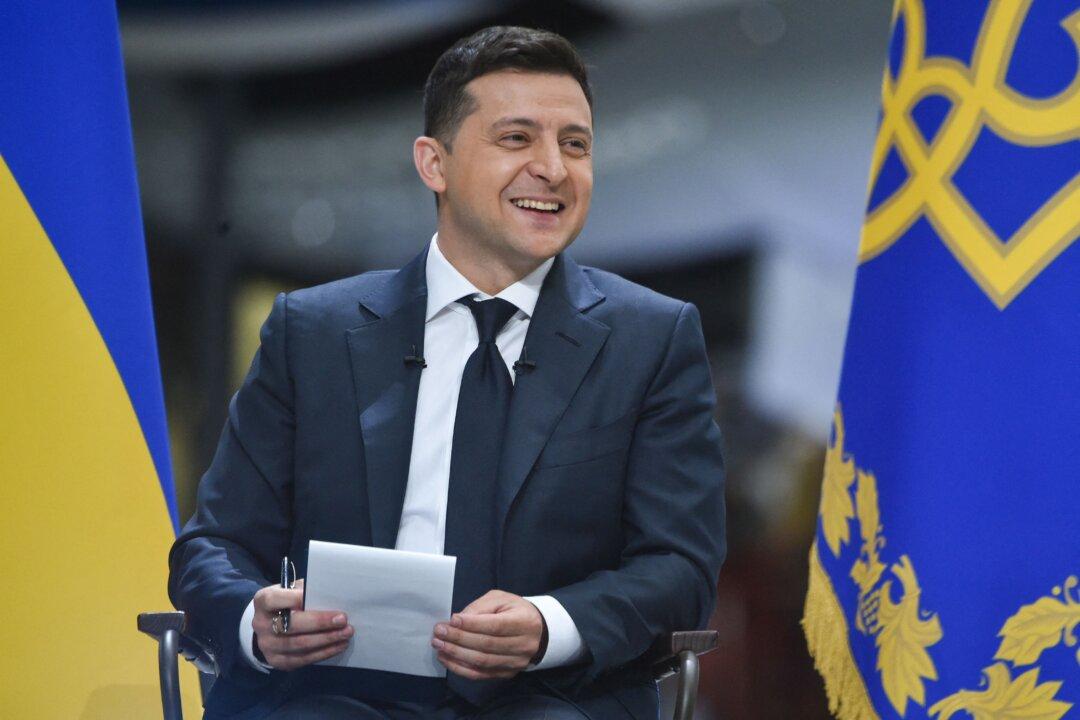Ukrainian President Volodymyr Zelensky said on June 4 that he’s “disappointed” by President Joe Biden’s decision to lift sanctions on Russia’s Nord Stream 2 pipeline, stating the shift in U.S. policy has essentially provided Russia with “bullets” in doing so.
“We were very surprised,” Zelensky told Axios of the Biden administration’s decision to waive sanctions on the company and CEO overseeing the construction of Russia’s Nord Stream 2 natural gas pipeline project last month.





